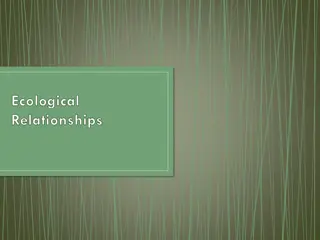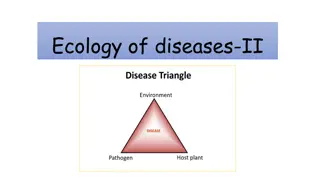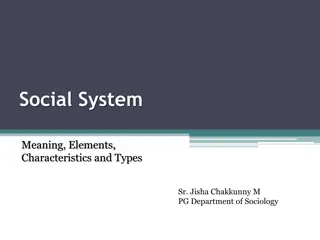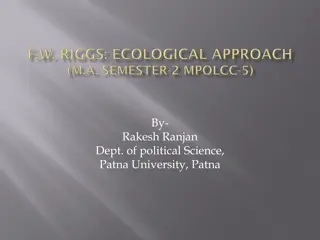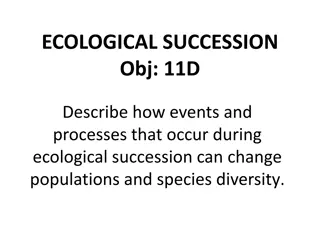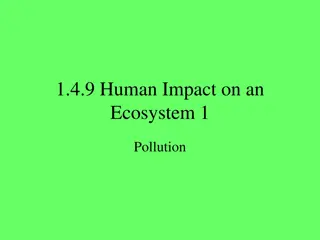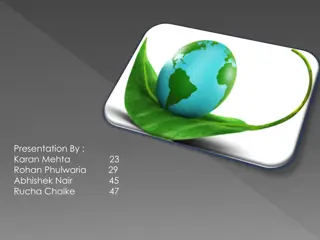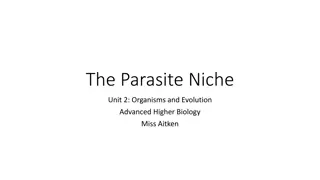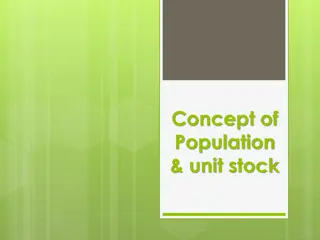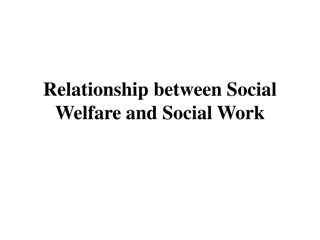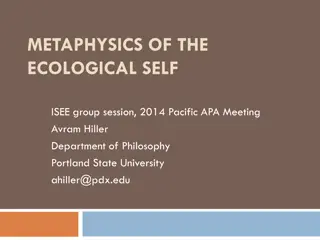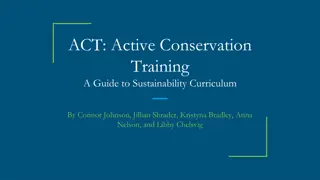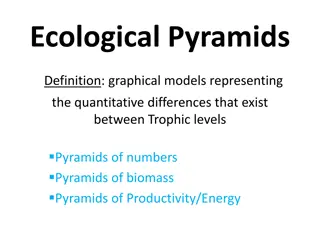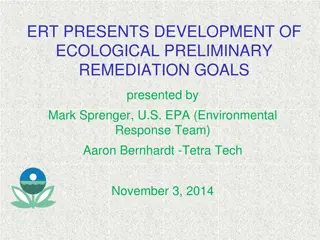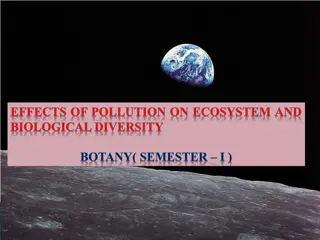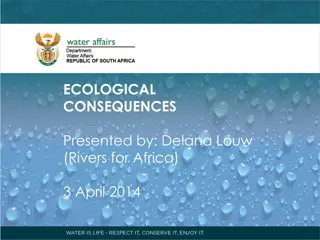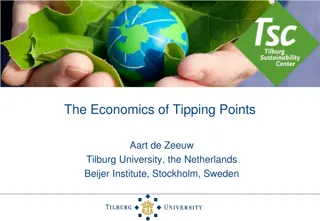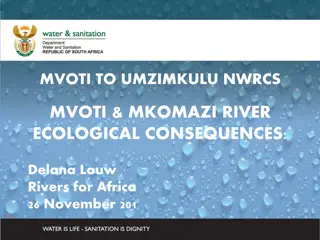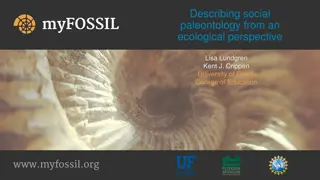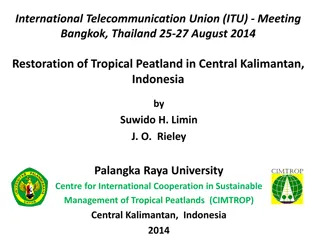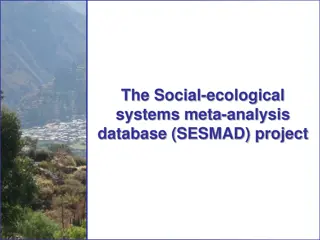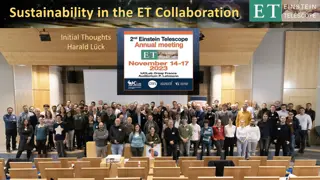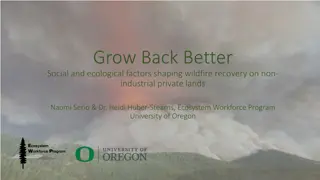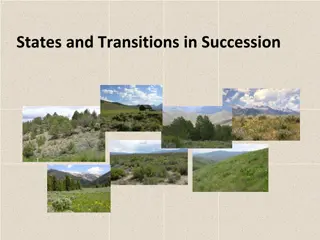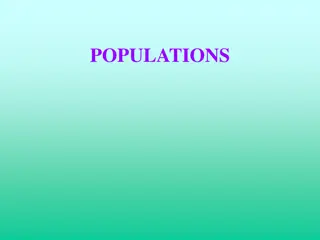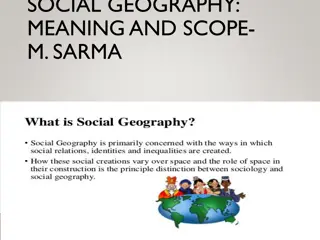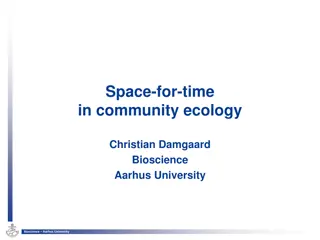Understanding Models with False Positive Detections in Occupancy Modeling
Explore the importance of addressing false positives in occupancy modeling, potential biases caused by them, methods to mitigate errors, and the extension of basic occupancy models to allow for false positives. Key concepts such as the Royle-Link model and the integration of classification processes
10 views • 33 slides
Understanding Information Systems in Organizational Management
Management in organizations is divided into three levels: operational, tactical, and strategic. Each level requires different information systems to support various activities. Operational systems focus on routine transactions and control processes, while middle-level systems aid in semi-structured
8 views • 39 slides
Understanding Social Entrepreneurship, Social Enterprise, and Social Innovation
Social entrepreneurship involves creating sustainable social impact, social enterprises address challenges in critical needs sectors, and social innovation focuses on developing effective solutions to social and environmental issues. These concepts emphasize creating social value while engaging with
2 views • 19 slides
Overview of Ecological Studies in Epidemiology
Ecological studies in epidemiology involve studying groups of individuals at a population level to examine the correlation between exposure and disease occurrence. While cost-effective and useful for generating hypotheses, ecological studies have limitations, such as the inability to control for con
3 views • 21 slides
Understanding Ecological Relationships and Food Chains
Explore the intricate ecological relationships in nature, including population dynamics, producer-consumer systems, and different types of consumers like herbivores, carnivores, and decomposers. Learn about food chains, food webs, and the interconnectedness of organisms in ecosystems through informa
0 views • 38 slides
Understanding Ecosystems and Disease Ecology
Explore the diverse types of ecosystems, including autochthonous, anthropurgic, and synanthropic ecosystems, and their impact on disease ecology. Learn about biotopes, biocenosis, ecological mosaics, and ecological interfaces, and discover how infectious diseases can be transmitted across these inte
0 views • 10 slides
Understanding Landscape Architecture: Designing Outdoor Environments
Landscape architecture involves the art and practice of designing outdoor spaces to harmonize with buildings, roads, and natural surroundings. It is a comprehensive discipline that encompasses land analysis, planning, design, management, and preservation, creating healthy and enjoyable spaces for th
1 views • 23 slides
Understanding Social Systems: Meaning, Elements, Characteristics, and Types
Social systems are orderly arrangements of social interactions based on shared norms and values. Talcott Parsons introduced the concept in modern sociology, defining it as an interrelationship of social actors interacting based on shared cultural norms. Social systems encompass various subsystems li
2 views • 70 slides
Understanding Medical Social Work and Its Impact on Patient Well-being
Medical Social Work, also known as Health Care Social Work, plays a crucial role in addressing the social, physical, and psychological needs of patients. Through providing case work, after-care, and convalescence services, Medical Social Workers contribute to reducing hospital readmissions, preventi
0 views • 12 slides
The Ecological Approach in Comparative Public Administration
Fred W. Riggs, a proponent of the Ecological Approach in Public Administration, emphasized the importance of understanding the interaction between administrative systems and their external surroundings. He introduced the Fused-Prismatic-Diffracted Model to explore the unique contexts of developing c
0 views • 21 slides
Understanding Ecological Succession and Its Impacts
Ecological succession is the orderly process of change in an ecosystem, where one community replaces another until a stable climax is reached. This progression affects populations and species diversity. The process involves primary and secondary succession, with events like tornadoes, hurricanes, an
0 views • 23 slides
Understanding Pollution and its Ecological Impact
Pollution is any human addition to the environment that disrupts the ecosystem's ability to sustain life. This includes pollutants like CO2 and chemicals from various sources that harm air, water, and land. Different types of pollution such as industrial, agricultural, and domestic pollution have ad
0 views • 25 slides
Understanding the Relationship Between Ecology and Business
Ecology and business have a complex relationship where human activities impact the ecological environment, and in turn, the environment influences our quality of life. Maintaining ecological balance is crucial for sustainable development, and businesses play a significant role in ensuring environmen
0 views • 19 slides
Objectives and Importance of Social Legislation for Social Workers
Social legislation is inspired by the constitution and aims to remove discrimination, safeguard rights of vulnerable groups, and eradicate social evils. It plays a crucial role in social welfare by providing a legal basis for addressing societal issues, enhancing community well-being, and facilitati
0 views • 4 slides
Understanding Ecological Niches in Advanced Biology
In Advanced Higher Biology, the concept of ecological niches is explored in depth, considering both abiotic and biotic factors that impact an organism's role in its environment. The fundamental and realized niches are distinguished, along with the Competitive Exclusion Principle and examples like sq
4 views • 18 slides
Understanding the Concept of Population and Unit Stock
The concept of population revolves around all organisms of the same species living in a specific area capable of interbreeding. It is essential to differentiate between sample populations and real populations to accurately study their attributes such as birth rates, death rates, and spatial dimensio
0 views • 15 slides
Understanding the Relationship Between Social Welfare and Social Work
Social welfare and social work are interconnected concepts aimed at enhancing societal well-being. Social welfare refers to a nation's system of programs and services meeting essential needs, while social work involves professional activities supporting individuals and communities in achieving socia
0 views • 6 slides
Metaphysics of the Ecological Self and Monism in Philosophy
The discussion explores the concept of the ecological self in deep ecology and the interplay with contemporary analytic philosophies like monism. It proposes a moderate view that acknowledges internal dependence relations between humans and the environment, grounding normative claims about human-env
2 views • 29 slides
Interactive Sustainability Curriculum for Conservation Training
Engage students in activities focusing on energy, agriculture, waste management, animals and ecosystems, consumption, and other sustainability topics. Lessons include understanding energy sources, land degradation, waste sorting, nature walks, tote bag making, and ecological footprints. Encourage cr
0 views • 7 slides
Understanding Ecological Pyramids: Models of Trophic Relationships
Ecological pyramids are graphical models that depict quantitative differences between trophic levels in an ecosystem. They come in three types: Pyramids of Numbers, Pyramids of Biomass, and Pyramids of Productivity/Energy. Pyramids of Numbers show the number of organisms at each trophic level, Pyram
0 views • 4 slides
Eco-Remediation Goals Development Training Overview
This presentation by Mark Sprenger from the U.S. EPA discusses the development of Ecological Preliminary Remediation Goals (PRGs). It covers the process steps, assumptions, risk information activities, and resources related to ecological risk assessment within the EPA's programs. The training module
0 views • 53 slides
Social Economy and Innovation in Emilia-Romagna Region
Emilia-Romagna Region in Italy highlights the importance of social economy and innovation for sustainable development. Various initiatives such as Social Cooperatives and Voluntary Associations contribute to the region's social well-being. The focus on social values and not-for-profit activities dri
1 views • 15 slides
Understanding Biological Diversity and Ecological Organization
Exploring the intricate balance of flora and fauna on our planet, this content delves into the vast array of plant and animal species coexisting in various ecosystems. It discusses the significance of biodiversity, the interaction of biotic and abiotic components in ecological systems, and the ecolo
0 views • 41 slides
Understanding Ecological Consequences in Ecosystem Management
Delana Louw from Rivers for Africa presented on the ecological consequences of various scenarios in ecosystem management. The process involves delineating units of analysis, stakeholder engagement, quantifying ecological water requirements, evaluating scenarios, and determining management classes. B
0 views • 14 slides
Information Systems in Organizations: Overview and Implementation
Information systems play a crucial role in organizations, encompassing transaction processing systems, functional area information systems, and enterprise resource planning systems. This content delves into the purpose of transaction processing systems, the support provided by information systems ac
0 views • 30 slides
Understanding Tipping Points in Ecological and Economic Systems
Delve into the complex dynamics of tipping points in ecological systems such as insect outbreaks, eutrophication of lakes, and bleaching of coral reefs, as well as their economic implications. Explore the interactions between human behavior and environmental factors, and the challenges in managing t
0 views • 29 slides
Understanding Social Neuroscience: Exploring Human Sociality and Well-Being
Social neuroscience delves into how the brain processes social interactions and their impact on human well-being. It focuses on the interconnectedness between social connections and overall life satisfaction, suggesting that humans are inherently social beings with a strong need for social belonging
2 views • 21 slides
Social Entrepreneurship and Social Inclusion in Bulgaria
The development and implementation of social entrepreneurship practices in Bulgaria aim to promote social inclusion through the development of the social economy. The focus is on combining economic results with social objectives, managed transparently with measurable, positive financial value. Vario
2 views • 12 slides
Ecological Consequences Assessment for Conservation Areas
Determining the ecological consequences of various scenarios is crucial for conservation efforts. The assessment focuses on changes in geomorphology, physico-chemical properties, fish populations, macroinvertebrates, and riparian vegetation. By evaluating scenarios based on ecological significance,
0 views • 11 slides
Social Paleontology From an Ecological Perspective
Social paleontology, practiced by paleontologists in various habitats, integrates face-to-face and online interactions for collaborative inquiry. The ecological learning perspective highlights the importance of social interactions in learning across platforms like myFOSSIL, Facebook, Twitter, and mu
0 views • 16 slides
Restoration of Tropical Peatland in Central Kalimantan: Addressing Ecological and Economic Concerns
Peat swamp forest in Central Kalimantan plays a crucial role in maintaining ecological balance and sustaining local economies. However, improper land use practices, such as the failed Mega Rice Project, have led to environmental degradation and social challenges. Efforts to restore tropical peatland
0 views • 40 slides
SESMAD Project - Social-Ecological Systems Meta-Analysis Database
The SESMAD project aims to analyze complex social-ecological systems by addressing the challenges of identifying and analyzing numerous variables impacting resource management. The project involves scholars from various universities and utilizes a relational database with over 200 variables to model
0 views • 7 slides
Sustainability Challenges in ET Collaboration: Addressing Ecological and Non-Ecological Aspects
The ET Collaboration is realizing the importance of sustainability, encompassing ecological and non-ecological aspects. Issues include balancing energy consumption and hardware longevity, remote access possibilities, funding sustainability, social partnerships, and designing instruments with sustain
0 views • 5 slides
Exploring Social and Ecological Factors in Wildfire Recovery on Private Lands
This study delves into the social and ecological aspects influencing wildfire recovery on non-industrial private forest lands post the Labor Day fires. Focusing on NIPF landowners, the research aims to understand the factors shaping resilience and recovery at the landscape level, including the role
0 views • 12 slides
Understanding Plant Community Succession and Ecological Transitions
Explore the dynamic process of plant community succession, from pioneer stages to climax communities, and the intricate patterns of transitions in ecological systems. Discover the variability and stability of different states within ecosystems, highlighting the complexities of natural ecological dyn
0 views • 14 slides
Understanding Population Dynamics and Adaptation in Ecological Systems
Population size and distribution are influenced by various factors such as competition, predation, migration, diseases, and natural disasters. Populations adapt to their environments to survive and reproduce, facing struggles like finding food, water, shelter, and protection against predators and di
0 views • 17 slides
Understanding Social Geography: Meaning, Scope, and Differences
Social geography is a branch of human geography focusing on social structures, groups, and activities. It examines the spatial arrangement of social phenomena, social differences, and patterns in understanding socially defined population groups. The scope of social geography includes analyzing spati
0 views • 25 slides
Understanding Ecological Goods and Services from Our Oceans
Explore the importance of ecological goods and services provided by oceans in Lesson 2 of the Oceans for Beginners curriculum. Learn about the tangible products, benefits, and services derived from ocean ecosystems, and reflect on their significance. Understand the categories of ecological services
0 views • 15 slides
Understanding Embedded Systems and Cyber-Physical Systems
Embedded systems are specialized computer systems embedded within larger systems, such as control systems and car controllers. This lecture covers real-time aspects, applications of Cyber-Physical Systems (CPS), and examples like the Boeing 777/Airbus A380 cockpit. It discusses the design process of
0 views • 22 slides
Understanding Space-for-Time Substitution in Community Ecology
Space-for-time substitution (SFT) is a method used to study slow ecological processes by assuming different sites are at various stages of development. This approach, famous for its role in ecological development, has been critiqued for its implicit use in testing hypotheses on ecological processes
0 views • 7 slides




